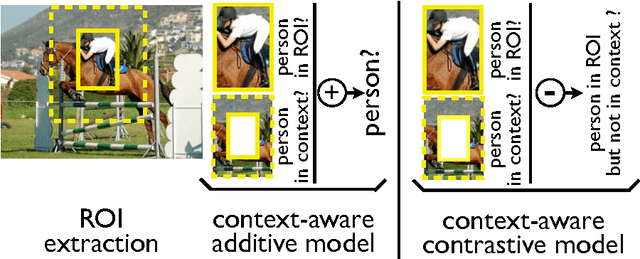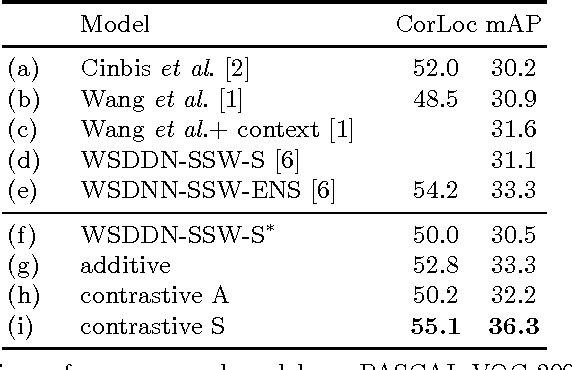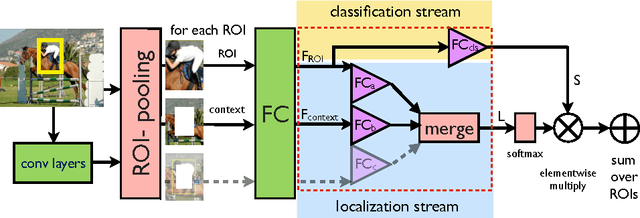Vadim Kantorov
DETReg: Unsupervised Pretraining with Region Priors for Object Detection
Jun 08, 2021



Abstract:Unsupervised pretraining has recently proven beneficial for computer vision tasks, including object detection. However, previous self-supervised approaches are not designed to handle a key aspect of detection: localizing objects. Here, we present DETReg, an unsupervised pretraining approach for object DEtection with TRansformers using Region priors. Motivated by the two tasks underlying object detection: localization and categorization, we combine two complementary signals for self-supervision. For an object localization signal, we use pseudo ground truth object bounding boxes from an off-the-shelf unsupervised region proposal method, Selective Search, which does not require training data and can detect objects at a high recall rate and very low precision. The categorization signal comes from an object embedding loss that encourages invariant object representations, from which the object category can be inferred. We show how to combine these two signals to train the Deformable DETR detection architecture from large amounts of unlabeled data. DETReg improves the performance over competitive baselines and previous self-supervised methods on standard benchmarks like MS COCO and PASCAL VOC. DETReg also outperforms previous supervised and unsupervised baseline approaches on low-data regime when trained with only 1%, 2%, 5%, and 10% of the labeled data on MS COCO. For code and pretrained models, visit the project page at https://amirbar.net/detreg
ContextLocNet: Context-Aware Deep Network Models for Weakly Supervised Localization
Sep 14, 2016



Abstract:We aim to localize objects in images using image-level supervision only. Previous approaches to this problem mainly focus on discriminative object regions and often fail to locate precise object boundaries. We address this problem by introducing two types of context-aware guidance models, additive and contrastive models, that leverage their surrounding context regions to improve localization. The additive model encourages the predicted object region to be supported by its surrounding context region. The contrastive model encourages the predicted object region to be outstanding from its surrounding context region. Our approach benefits from the recent success of convolutional neural networks for object recognition and extends Fast R-CNN to weakly supervised object localization. Extensive experimental evaluation on the PASCAL VOC 2007 and 2012 benchmarks shows hat our context-aware approach significantly improves weakly supervised localization and detection.
 Add to Chrome
Add to Chrome Add to Firefox
Add to Firefox Add to Edge
Add to Edge